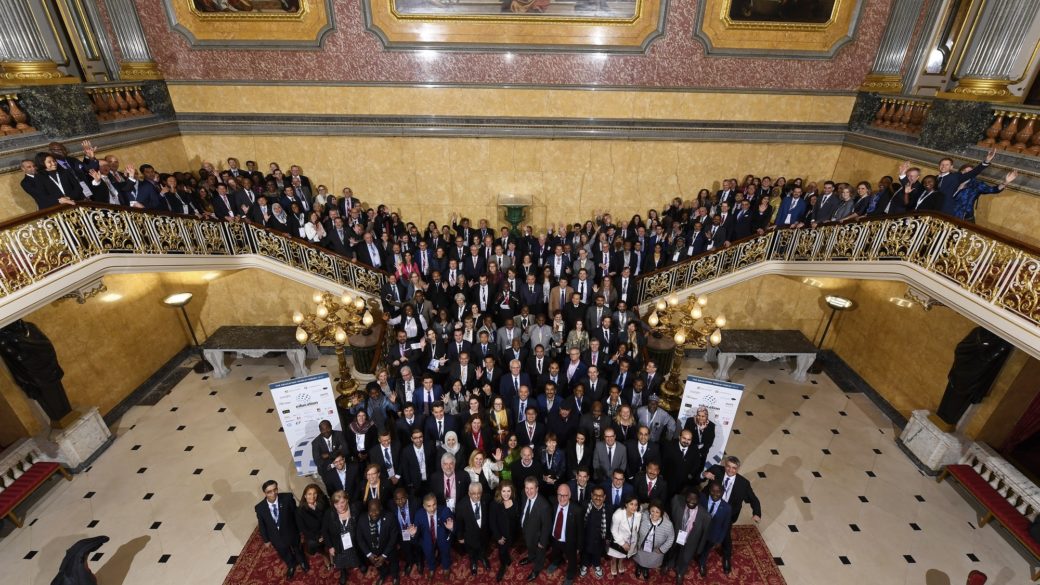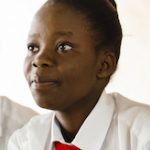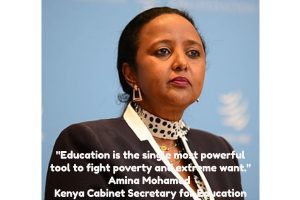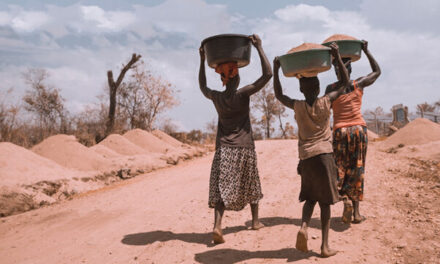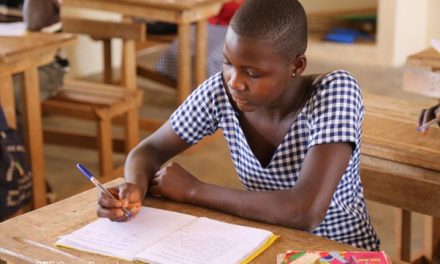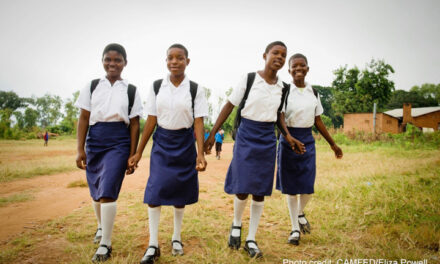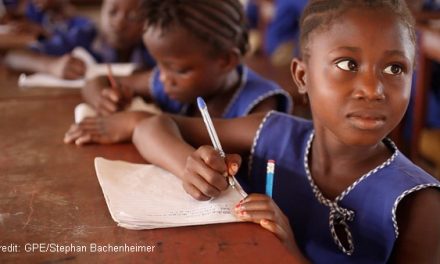This week has been an exciting and important week in the world of international education.
The first International Day of Education
Today, 24th January, marks the first ever International Day of Education – declared by the UN to recognise the role of education for peace and sustainable development. Without inclusive and equitable quality education and lifelong opportunities for all, countries will not succeed in achieving gender equality and breaking the cycle of poverty that is leaving millions of children, youth and adults behind.
The first half of this week saw the annual Education World Forum (EWF) held in London. This is the world’s largest gathering of education and skills ministers. For three days, delegates representing over two thirds of the world’s population gathered to debate future education policy.
Call for Stronger political commitment and leadership
 The first day of the EWF also saw the launch of a flagship publication commissioned by the UK Foreign and Commonwealth Office (FCO) and produced by the REAL Centre at the Faculty of Education, University of Cambridge. The study, 12 Years of Quality Education for All Girls: A Commonwealth Perspective, shockingly shows that the poorest girls in many Commonwealth countries spend no more than 5 years in school. This is despite the global goal of 12 years of quality universal education.
The first day of the EWF also saw the launch of a flagship publication commissioned by the UK Foreign and Commonwealth Office (FCO) and produced by the REAL Centre at the Faculty of Education, University of Cambridge. The study, 12 Years of Quality Education for All Girls: A Commonwealth Perspective, shockingly shows that the poorest girls in many Commonwealth countries spend no more than 5 years in school. This is despite the global goal of 12 years of quality universal education.
This new report charts the global inequality in girls’ education and reveals that the most disadvantaged rarely reach levels beyond primary, although these higher levels benefit the most from national and aid funding. In Nigeria and Pakistan, girls from poor rural households average just 1 year at school, while rich urban boys enjoy 11 or 12 years of study.
According to the report, national governments and donor countries must show greater political commitment if global goals on gender equality in education are to be reached.
Barriers to access
The study highlights a range of barriers that prevent girls from accessing education, including:
- gender-based violence within and on the way to school
- absenteeism during menstruation because of a lack of availability of sanitary protection
- cost, with poverty leading some girls to have sex with men who provide them with the essentials of secondary schooling that their family cannot afford.
Schools must be made ‘safe spaces’ for girls, particularly in areas affected by conflict. Cash support for the poorest families may help ease financial pressures and free up daughters to go to school.
Equality a ‘distant reality’
The study finds that, over the past 20 years, considerable progress has been made in increasing access to primary schooling in the 53 countries of the Commonwealth. There are now equal proportions of boys and girls enrolled in primary in 31 out of 44 Commonwealth countries with data. But despite this progress, “12 years of schooling remains a distant reality for many of the most disadvantaged girls residing in Commonwealth countries.”
In 2017, 137 million primary-and-secondary school aged children were out of school in these countries, approximately half of them girls. Children and adolescents affected by conflict are most likely to be out of school, and refugee girls are particularly at risk: they are half as likely as their male counterparts to be in secondary school.
Poor learning in school
Researchers found that even those children in school are frequently not learning the basics. The recently launched Human Capital Index shows that girls’ education fares far worse when years in school is adjusted for whether or not children are learning. In 14 out of the 26 countries with data, girls who are in school are learning only for the equivalent of 6 years or less. The picture is likely to be even starker for girls in rural areas and those facing other forms of disadvantage.
The importance of early years education
Disadvantage starts early, the study says, with many girls denied early years investment that is proven to boost educational achievement later. In 8 of 14 Commonwealth countries with data, no more than 40% of poor rural girls have access to pre-primary education, and in 3 out of these 8 countries, fewer than 10% are enrolled.
Governments need to do more to target funding on lower levels of education and marginalised groups. Of the 35 Commonwealth countries with data on pre-primary spending, 25 governments are spending less than 5% of their education budgets on pre-primary education. Funding for primary education fell from around two thirds in 2002 to under a half (47%) by 2016, and a mere 0.4% of education aid to Commonwealth countries was spent on pre-primary education. By contrast, 10% is spent on scholarships to allow students from aid-recipient Commonwealth countries to study in donor countries, even though only the most privileged benefit from such schemes.
Support for girls at puberty
There must also be steps to address the particular challenges marginalised girls face at puberty, such as provision of sanitary pads in schools, and moves to keep girls safe and secure in school, including providing female staff, secure buildings and door-to-door transport between school and home. More broadly, gender-sensitive teaching practices and materials are needed to ensure discriminatory stereotypes are not enforced.
The report sets out three priorities for further action, including “high-level, visible political leadership” towards gender equality in education, backed up by sufficient resources to reach the most marginalised girls. Investment in early years education is also vital, together with making girls’ education a priority in wider national development planning.
Notes
Full citation: Gordon, R., Marston, L., Rose, P. and Zubairi , A. 2019. 12 Years of Quality Education for All Girls: A Commonwealth Perspective. REAL Centre. University of Cambridge.
The report was commissioned by the Platform for Girls’ Education, co-chaired by the UK Foreign Secretary Jeremy Hunt and Kenyan Cabinet Secretary for Education Amina Mohamed. The Platform, a group of 12 influential figures across the Commonwealth, was launched by the UK government after the Commonwealth Heads of Government Meeting (CHOGM) in April 2018, affirming the importance of 12 years of quality education for all, particularly marginalised girls. In response to the CHOGM commitment to “leave no girl behind”, the platform aims to drive forward action in the run-up to the organisation’s next meeting in 2020.
Contact: University of Cambridge Faculty of Education Communications Manager Lucy Ward on lw28@cam.ac.uk or tel +44 (0)7788567707

